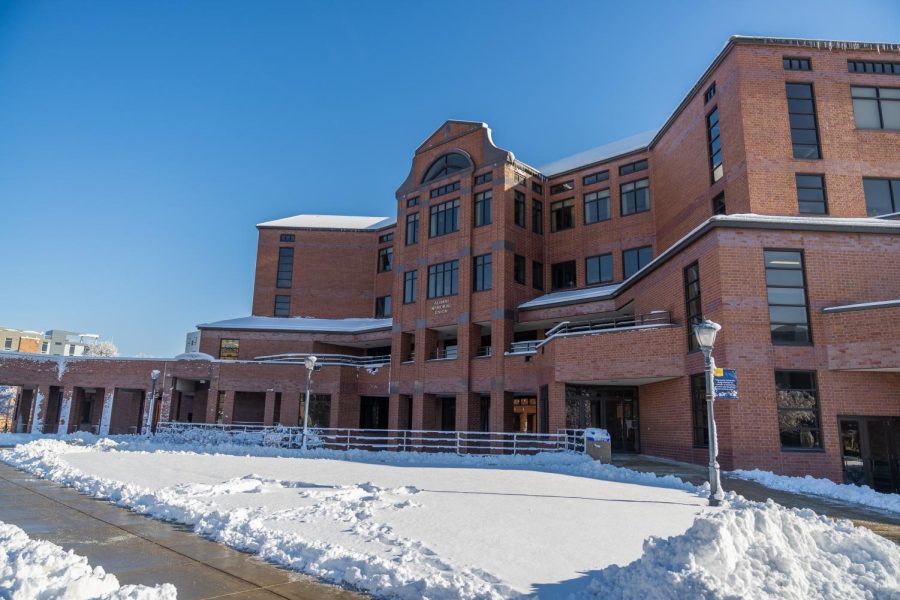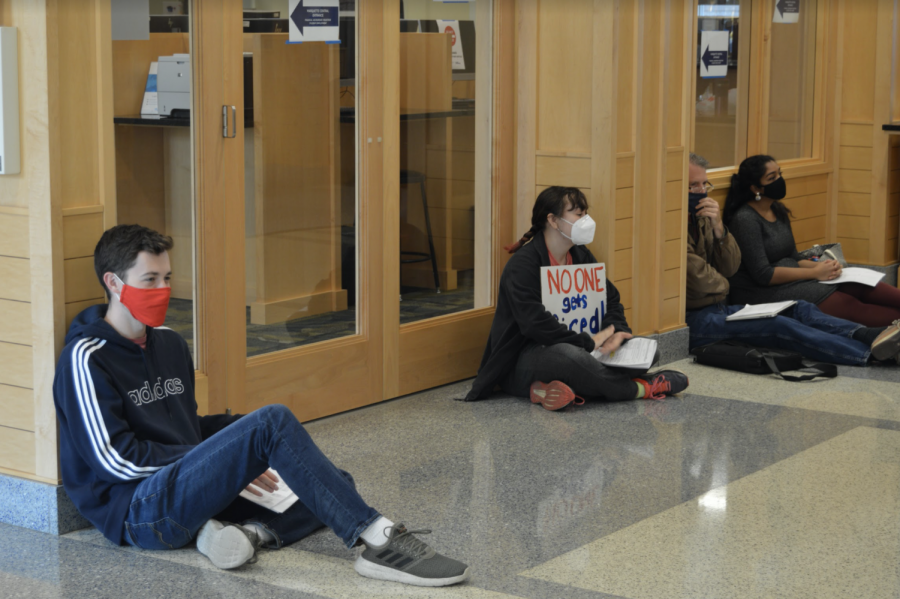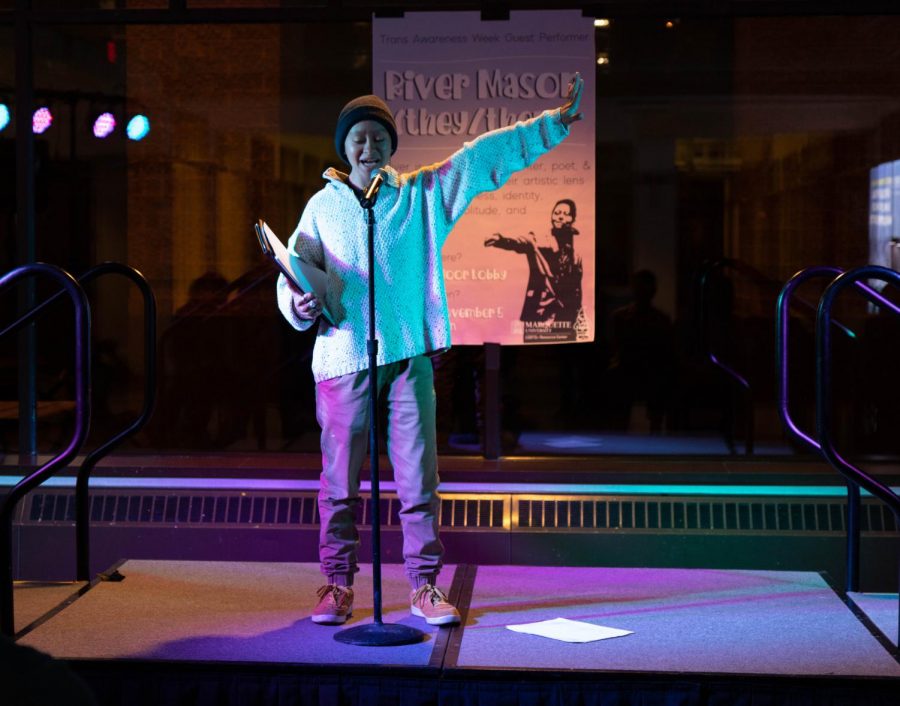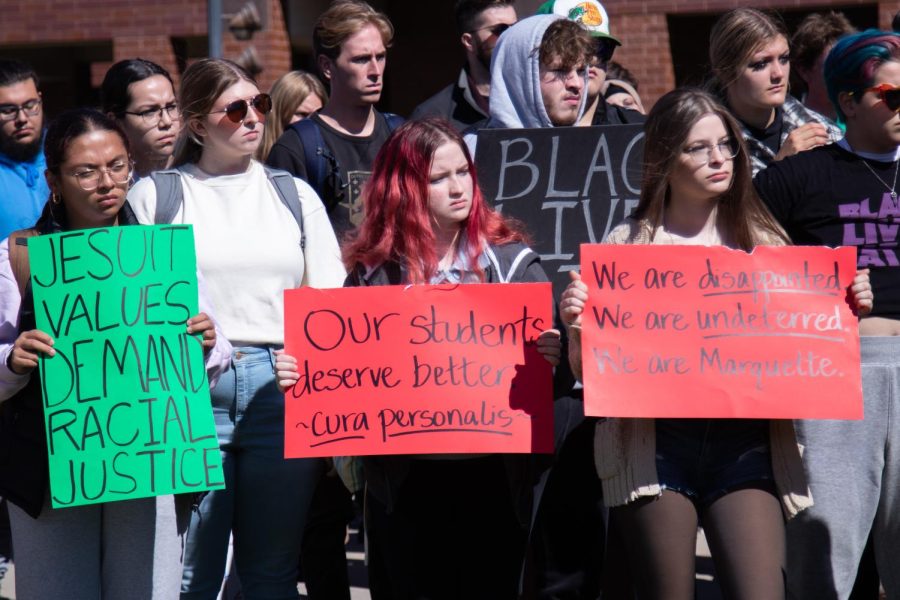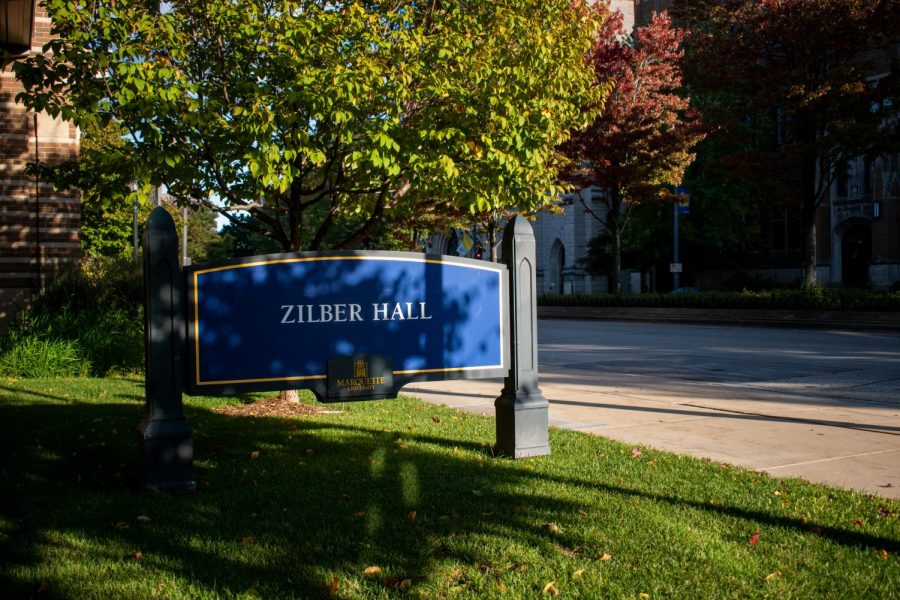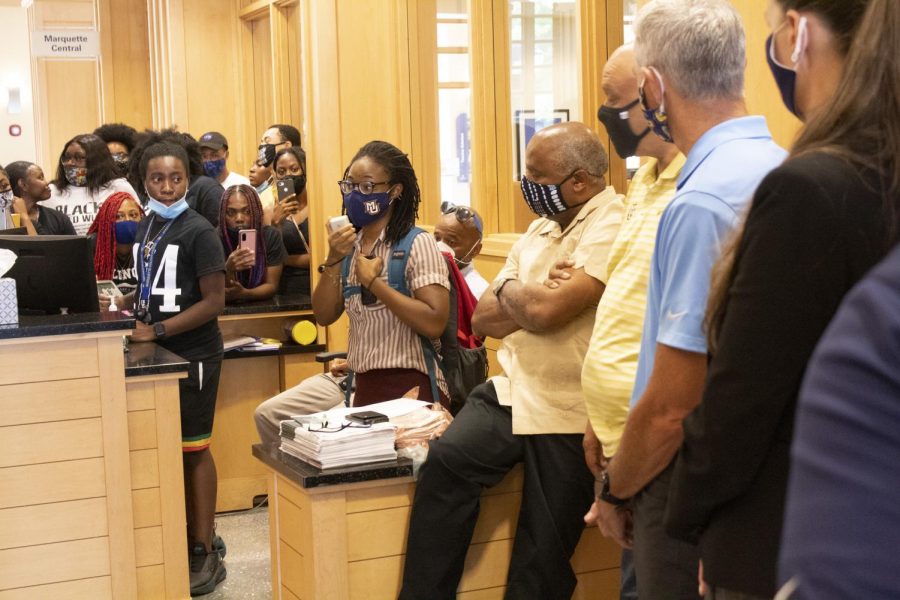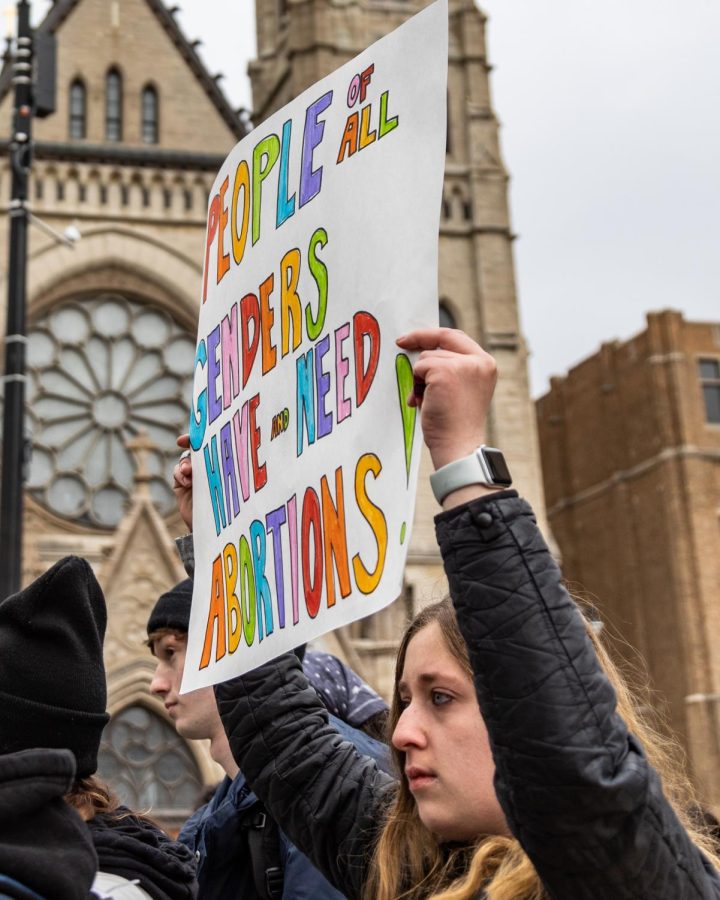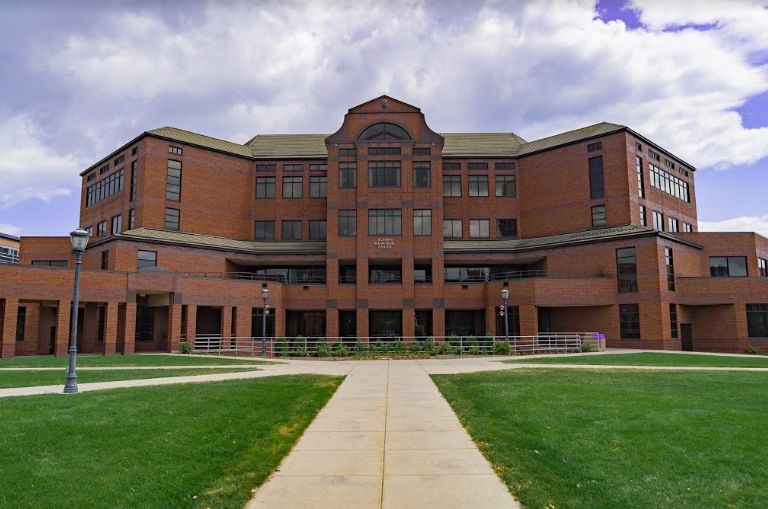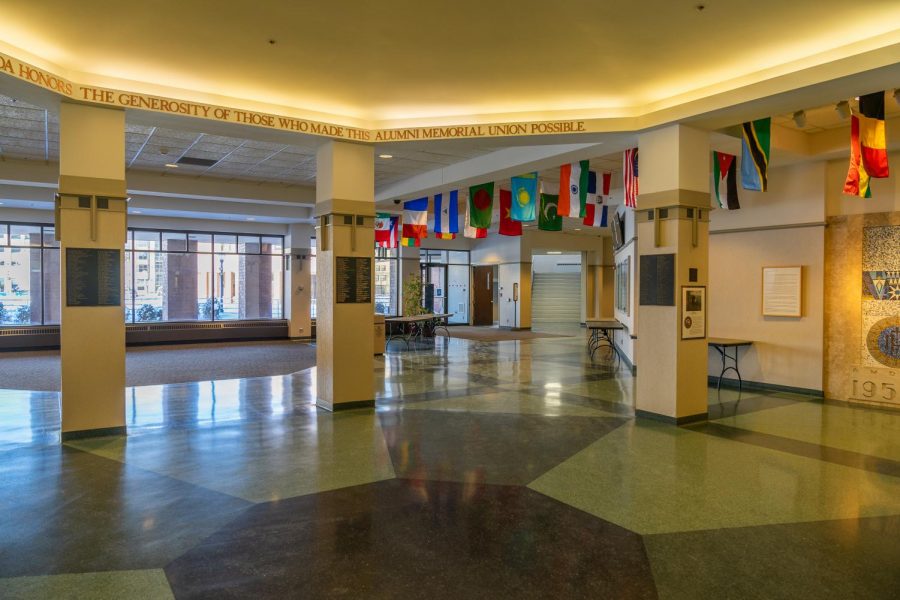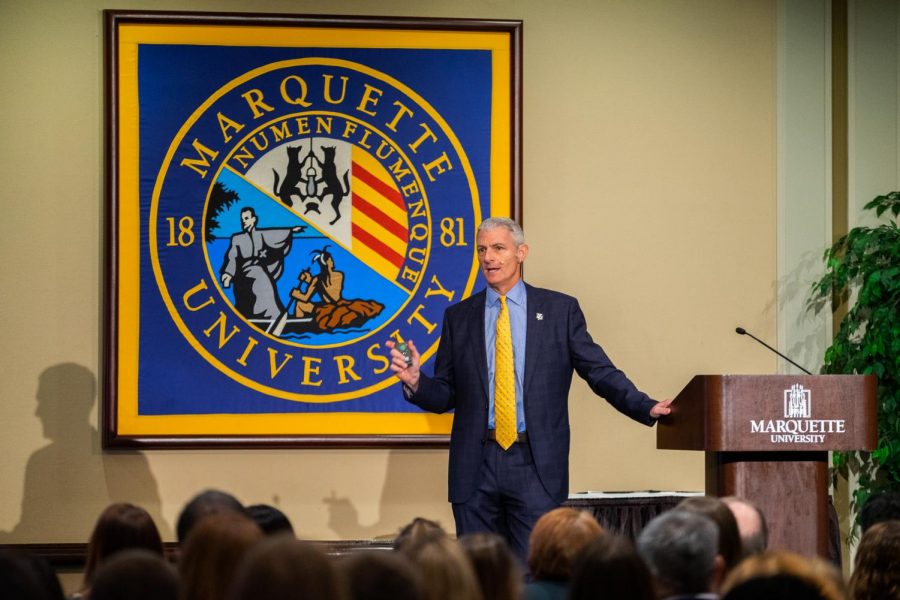Marquette first released a demonstration policy as part of the university policies and procedures May 16, 2019. Prior to this, the only demonstration policy in place was located under student organization policies on Marquette’s website.
The added UPP demonstration policy was the first time a demonstration policy was in place that applied to all students, faculty and staff. The student organization policy has not been altered.
“The policy was situated in the student organization policies, and so we didn’t stipulate it specifically as the ‘Student Organization Demonstration Policy’ until the UPP came out,” dean of students Stephanie Quade said in an email. “Then, we tried to clarify the name, to differentiate it from the UPP.”
According to Wayback Machine, an internet archive service, the student organization policy online has not been changed since April 2018. The Marquette Wire was not able to access an earlier version. The title was changed from “Demonstrations Policy” to “Student Organization Demonstration Policy.”
The UPP demonstration policy went through a months-long revision process addressing feedback from the Marquette community before it was finally updated Feb. 13. Most of the changes involved minor differences in language in order to make the policy’s guidelines as clear as possible.
The university demonstration policy addresses how and where students, faculty and staff can demonstrate on campus. It states that individuals may host demonstrations in public areas of the Alumni Memorial Union and its adjacent greenspaces, on Central Mall and on any public property. Students, faculty and staff must get prior approval if they wish to demonstrate in an alternative location.
However, the student organization demonstration policy states that all demonstrations by campus organizations must get approval before protesting on any area of campus. It also provides other limitations, including a rule in which the protesting group may not utilize any “amplified sound devices” and that the protest may not occur inside any university building except the AMU.
Cory Forbes, a first-year student in the College of Arts & Sciences, said he does not understand the purpose of having separate demonstration policies for student organizations and individuals.
Last semester, Forbes participated in the climate change demonstration outside Zilber Hall and organized a protest against Young Americans For Freedom’s event with speaker John Doyle. This year, he was a part of a protest against Campus Ministry’s involvement in March for Life.
Forbes said in his experience, protesting groups, even if all the members protesting were involved in a specific organization, did so as individuals so that they did not have to follow the specific restrictions outlined in the student organization demonstration policy.
“I don’t think it changes anyone’s behavior much at all. I’d say that it more just means that there are people doing (this) individually and don’t affiliate with any student (organization),” he said. “You see, because there’s rules like you can’t use megaphones, and you need to get permission and you can’t have certain signage if you’re a student org, while the individual policy is just, ‘Here are the places you could protest, and make sure you don’t violate these broad and vague guidelines.’”
He said he does not think the student organization demonstration policy does anything to limit the number of protests because student organizations can just demonstrate as a group of individuals.
Since the May 16 policy release, there have been four updates to the UPP demonstration policy. Two versions came out last semester, Aug. 16 and Aug. 27. The final policy that came as a result of this round of edits was released Feb. 13.
Sumana Chattopadhyay, chair of the University Academic Senate and associate professor of digital media and performing arts, said the Marquette community did not give feedback to the UPP demonstration policy until the Aug. 16 update was announced in a university email.
She said the community’s reaction to the policy prompted a brief discussion, which led to a policy with minor edits made in versions released Aug. 27. A third update was then created Sept. 9, Chattopadhyay said. However, according to the dates listed on the official demonstration policy document, the Sept. 9 draft was never publicly announced.
Assistant provost and chief of staff Cindy Petrites said she believes the Sept. 9 draft was discussed at the Academic Senate meeting Sept. 16 but was not made official policy online.
Chattopadhyay said following the three edits to the May policy, it was decided that the policy should be analyzed by faculty, staff and senate members through a longer revision process in the Academic Senate.
“After September, it was decided … we all had our thoughts, and there was quite a lot of energy around the issue … we as a senate body wanted to weigh in and work, and Provost Ah Yun also kind of wanted to get more feedback,” Chattopadhyay said. “So therefore, we decided all the campus stakeholder bodies — so the Academic Senate, the Staff Senate and (Marquette University Student Government) — will offer their input, and then the central policy review body is going to try and incorporate the comments, bring them all together and try to make as many edits as possible.”
The months-long policy-editing endeavor eventually resulted in a finalized policy Feb. 13.
There was also a policy specifically concerning the Alumni Memorial Union and demonstrations there, first released Aug. 20 and updated Aug. 28. The AMU demonstration policy has much of the same wording as the demonstration policies from August, with added details. The policy is still available online.
Because she did not oversee the edits until the policy went through the Academic Senate, Chattopadhyay said she was uncertain about the revision process that resulted in the August and September versions of the policy.
This story was written by Kelli Arseneau. She can be reached at [email protected].

